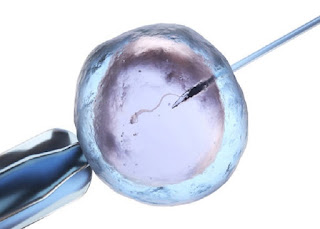IVF Timeline: How Long is the IVF Process?
IVF or in vitro fertilization has been an important part of people’s lives for years and can help individuals conceive children despite fertility issues. The IVF journey can be hard and confusing, especially when it comes to the timeline. "How long does the IVF process take?" is one of the most commonly asked questions about starting IVF and it varies based on the person. This article will act as a general guideline for what to expect through an IVF journey with the Center for Reproductive Endocrinology in Dallas, Texas:
Physician Consultation
The
first step is to have a consultation scheduled with an IVF specialist to
discuss the IVF process and treatment plan for an individual case. This is the
stage for you to raise more specific questions about your upcoming experience.
The more communicative you are with your physician, the more it will help you
determine what you need for your IVF journey to be as successful as possible.
Financial Consultation
A financial coordinator can guide
you through the different pricing package options around the time of your
initial consultation with physicians. You can connect with a financial
coordinator at the Center for Reproductive Endocrinology before speaking with a
doctor, or you may first want the doctor’s advice on which IVF package is the
best fit for you.
Pre-IVF Testing – 1 Week
It is
important to know what types of tests your physician requires and what types of
medications you will take during the process. At the Center for Reproductive
Endocrinology, their physicians typically order blood tests to check female
patients' ovarian reserve and look for any abnormalities. Male patients will
also go through blood tests, and a semen evaluation is usually required before starting
the IVF treatment.
Here are
a few examples of tests needed for female patients:
·
AMH (Anti-Mullerian Hormone)
·
AFC Ultrasound (Antral Follicles count)
·
PAP smear
·
CBC (complete blood count)
·
TSH (Thyroid-stimulating hormone) and Free T4
·
Prolactin
Here are
a few examples of tests needed for male patients:
·
Semen evaluation
·
Hepatitis B Core antibody
·
Hepatitis B Surface antigen
·
Hepatitis C antibody
·
Syphilis
·
Cytomegalovirus (CMV) IgG/IgM
The results for the above lab
tests and more usually take a week to finalize.
Genetic Carrier Screening: 2-3 Weeks
When you
are preparing to become pregnant, you want everything to go right. While most
babies are born healthy, with every pregnancy there is a small chance of having
a baby with a genetic disorder. With genetic carrier screening, you can learn
your risk for passing an inherited genetic disorder to your child and may be
able to reduce it.
Genetic carrier screening is a
type of genetic test that analyzes your DNA to provide specific information
about your child’s risk for certain genetic disorders. The results can allow
you to make more informed reproductive choices. This test is usually ordered at
the beginning of your IVF journey. The results usually
take around two to three weeks to finalize.
Egg Retrieval Stimulation Cycle: 10-14 days
Your doctor will prescribe you a
few medications before the egg retrieval simulation process begins. You will
need to take these medicines for a certain amount of time as prescribed by the
doctor. You will be ready to start the egg retrieval stimulation cycle after a
physician reviews all your pre-cycle lab results and medications.
Injections usually start from day
2 or day 3 of your menstrual cycle. The average time for the egg retrieval
stimulation cycle ranges from 10-14 days, but each case can vary depending on
how the patient’s body reacts to the medications. This timeframe starts when
the patient begins medication used for ovarian stimulation for the retrieval
procedure.
Fertilization and PGT – 3 Weeks
The day
after the eggs have been fertilized, we will provide a fertilization
report. The fertilized embryos will be cultured for 5-7 days, and then be
biopsied and sent for PGT (preimplantation genetic testing). Once the embryos
have been fertilized and biopsied, it takes around two weeks to receive the
genetic testing results. After the clinic knows the embryo's results, you will
then be ready to prepare for an embryo transfer cycle.
Preparing FET (Frozen Embryo Transfer) Cycle
When it comes to a FET (cycle,
each case can vary due to several factors. In a typical scenario, the embryo
transfer procedure usually occurs between days 19 and 21 of the patient's
menstrual cycle. You should take a pregnancy blood test approximately 10 days
post-implantation. The clinic will continue to follow up with the pregnancy
until the 10 weeks OB ultrasound. Typically, after 10 week's OB ultrasound, you
will then be discharged to OB's care.
IVF can be a strenuous process but
it can be made easier with the right choice of IVF clinic. You can find the
right IVF clinic at the Center for Reproductive
Endocrinology in Dallas, Texas. You can also call 972-566-6686 for
more information about IVF or other
treatments.



Comments
Post a Comment